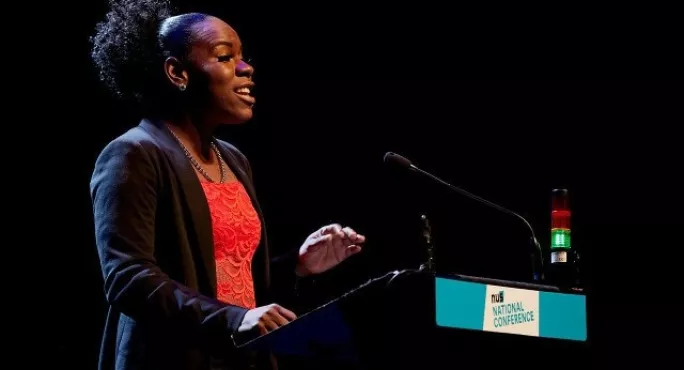I am a black working-class single mother. I did not come through a traditional route to education. I left high school with one GCSE, left home at 16 - living on just £44.50 per week - and became the young mother of two beautiful girls. It was adversity, not university, that has moulded my life and made me the person I am today. If you were to tell any of my teachers at secondary school this would be where I am, where I have worked to be, they would never believe you.
But here I am. Against all odds. Further education transformed my life and gave me the second chance I needed. I am now the proud holder of a Level 5 Diploma in leadership and management and national president of NUS. I realised that before FE, I was living in the world, but not fully understanding it. Transformative education allowed me to become a part of it.
My hope and my vision for the UK is that we will arrive at a day where my story is not against all odds. That no working-class person’s story is against all odds. We will no longer be the exceptions to the rule when it comes to success and fulfilment in education. We will be the rule.
Income is inadequate
The evidence gathered by the Poverty Commission and set out in today’s report shows how far we have to go before that vision is real. For too many apprentices, learners and students, income is inadequate while the costs of their education keep rising. For working-class students the barriers are only higher: the system creates a poverty premium that means those who don’t have money to begin with end up paying more because they have to get into more debt and they can’t avoid certain costs.
And it’s not just money: poverty and class are linked. All too often, the assumptions made about apprentices, learners and students stem from the middle-class perspective of the people who run our institutions, and mean that working-class students don’t see further or higher education as being for them. They don’t have access to the same guidance and support to make the right decisions for them or to help them when things go wrong. They are rejected by other students for being working class.
This has to change. Government, the FE and HE sector and the student movement must work together to take forward the recommendations of this report and challenge and dismantle all the barriers to education so that everyone has the chance to get in and get on.
Education changed my life, and my vision is that everyone has the same opportunities as I did.
Shakira Martin is president of the NUS students’ union
